
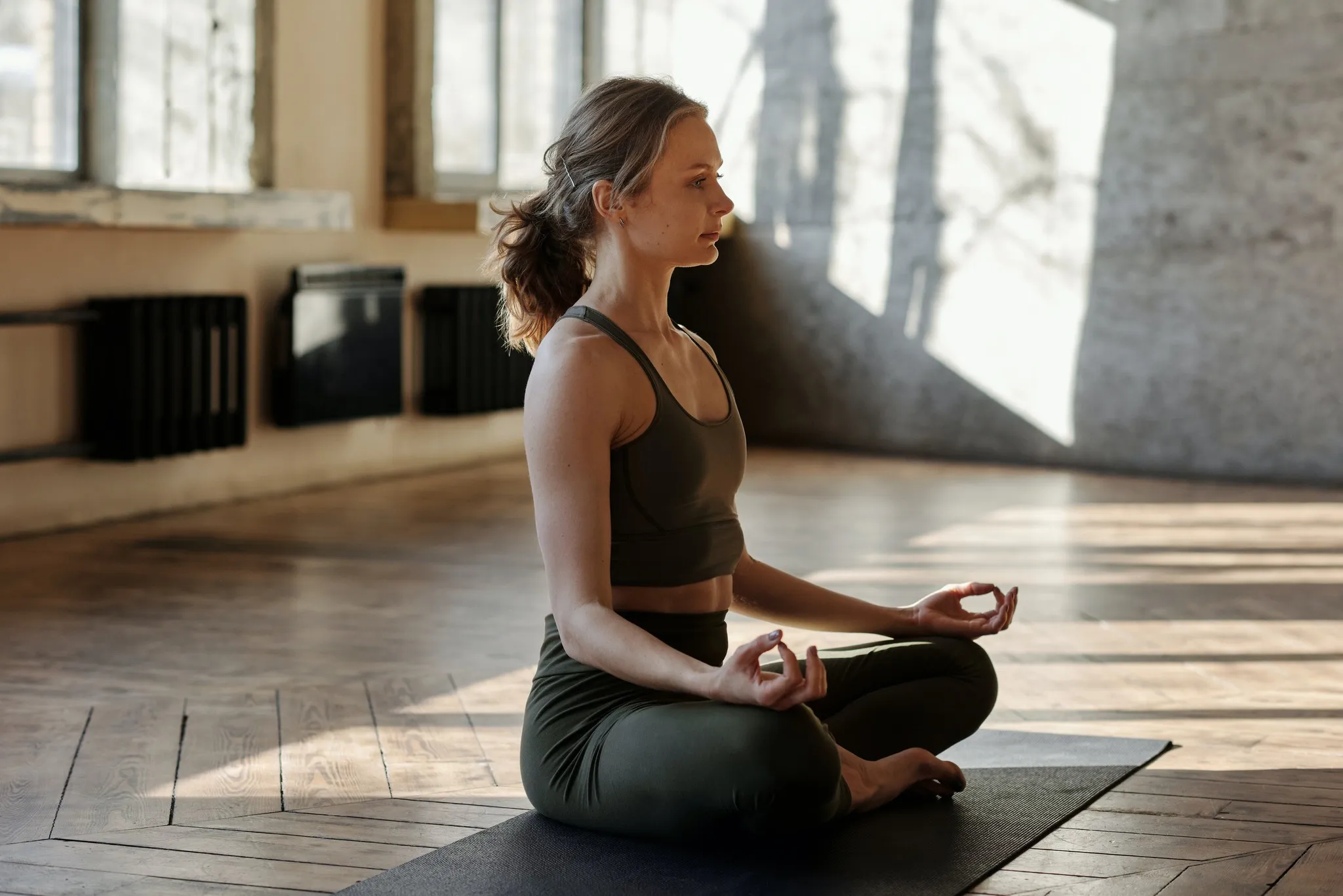
Are you struggling with addiction or bad habits that are holding you back from living your best life? You're not alone. Many people find themselves trapped in a cycle of self-destructive behavior that can be difficult to break free from. However, there is a powerful tool that can help you overcome these challenges and reclaim control of your life: Yoga.
Yoga is more than just a physical exercise. It's a holistic practice that integrates body, mind, and spirit. Through the practice of yoga, you can develop greater self-awareness, cultivate mindfulness, and build resilience to overcome addiction and bad habits.
In this article, we'll explore the ways in which yoga can help you overcome addiction and bad habits. We'll discuss the science behind how yoga affects the brain and body, as well as practical tips for incorporating yoga into your daily routine. Whether you're new to yoga or have been practicing for years, you'll discover how this ancient practice can help you heal and transform your life. So let's dive in and explore the transformative power of yoga for overcoming addiction and bad habits.
Yoga is a holistic practice that brings together the body, mind, and spirit. When it comes to addiction and bad habits, yoga can be especially helpful because it addresses both the physical and emotional aspects of the issue. By practicing yoga regularly, individuals can develop a greater awareness of their thoughts, emotions, and physical sensations. This increased awareness can help them identify the root causes of their addiction or bad habit and develop new coping strategies.
One of the key benefits of yoga for addiction and bad habits is that it promotes mindfulness and self-awareness. By practicing yoga, individuals can learn to observe their thoughts and emotions without judgment. This can be incredibly helpful for those struggling with addiction or bad habits, as it can help them become more aware of their triggers and make more conscious decisions. Through yoga, individuals can cultivate a greater sense of self-awareness and learn to respond to their emotions in a healthy way.
Another benefit of yoga for addiction and bad habits is that it can be a healthy and productive way to cope with stress, anxiety, and other difficult emotions. By practicing yoga, individuals can learn to manage their emotions in a positive way. This can be especially helpful for those who have relied on addictive behaviors as a way to cope with stress or negative emotions in the past.
Stress and anxiety are common triggers for addictive behaviors. Yoga has been shown to be an effective way to reduce stress and anxiety, which can make individuals more resilient and less likely to turn to addictive behaviors as a way to cope. By practicing yoga regularly, individuals can cultivate a sense of inner calm and develop healthier coping mechanisms.
Finally, it's important to remember that addiction and bad habits can take a toll on physical health as well as mental health. Yoga is a great way to improve physical health, which can in turn support addiction and bad habit recovery. By practicing yoga, individuals can improve their flexibility, strength, and overall physical well-being.
Now that we've explored the ways in which yoga can help with addiction and bad habits, let's dive into specific yoga practices that can be particularly beneficial.
Yoga asanas, or postures, can help individuals develop greater physical awareness and flexibility. This can be especially helpful for those who may have neglected their physical health due to addiction or bad habits. Certain asanas can also help individuals release tension and promote relaxation. Some asanas that can be particularly beneficial for addiction and bad habits include:
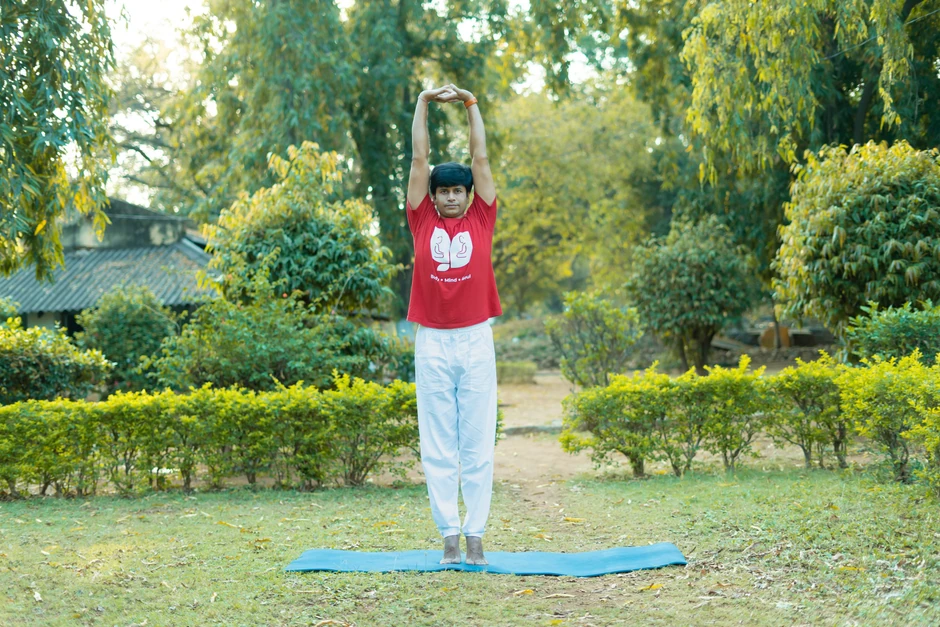
Tadasana is a simple yet powerful yoga asana that can help you develop a sense of grounding and stability. This pose can help you overcome addictive tendencies by strengthening your willpower and focus.
To practice Tadasana, stand with your feet hip-width apart and your arms by your sides. Press your feet into the ground and lift your spine towards the ceiling. Hold the pose for a few breaths and then release.
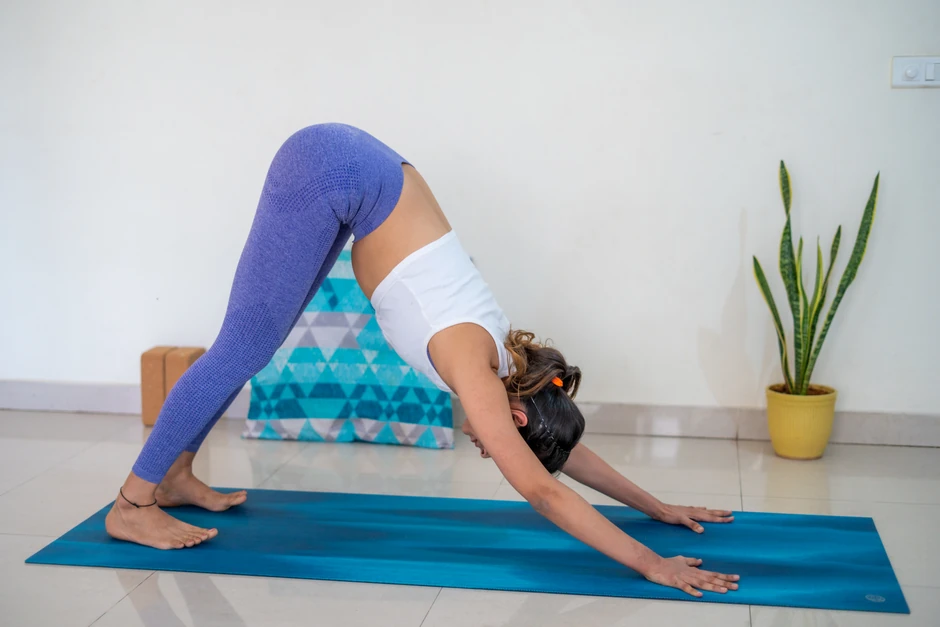
Adho Mukha Svanasana is a popular yoga asana that can help you release tension and stress. This pose can help you overcome addictive tendencies by calming your mind and reducing anxiety.
To practice Adho Mukha Svanasana, come onto your hands and knees, with your hands shoulder-width apart and your knees hip-width apart. Press your hands into the ground and lift your hips towards the ceiling. Hold the pose for a few breaths and then release.
_optimized.webp)
Vrikshasana is a balancing yoga asana that can help you develop focus and concentration. This pose can help you overcome addictive tendencies by strengthening your willpower and self-discipline.
To practice Vrikshasana, stand with your feet hip-width apart and your arms by your sides. Lift your right foot and place it on your left thigh. Press your hands into your heart and hold the pose for a few breaths. Repeat on the other side.
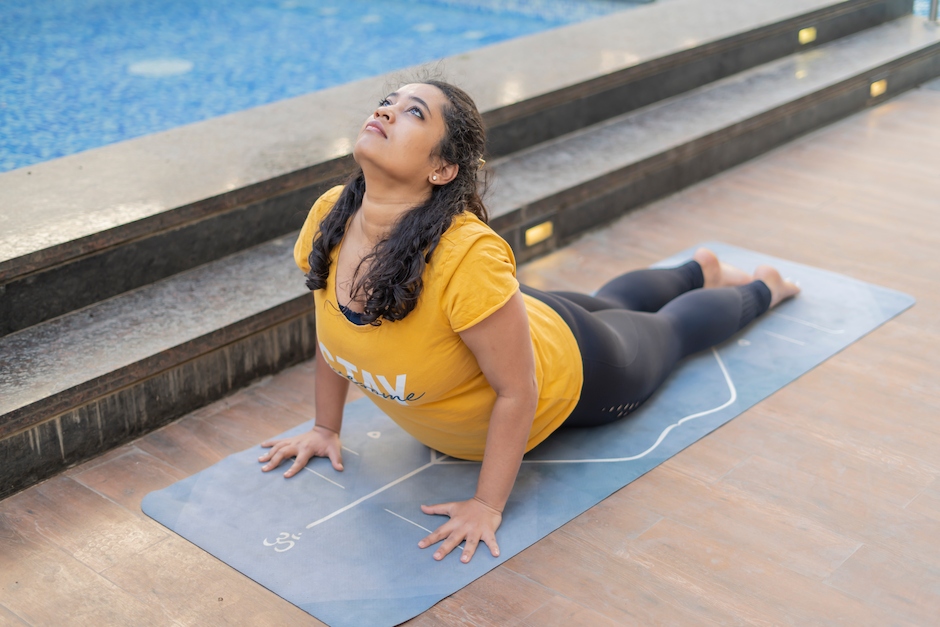
Bhujangasana is a gentle backbend that can help you release tension and stress. This pose can help you overcome addictive tendencies by reducing anxiety and promoting relaxation.
To practice Bhujangasana, lie on your stomach with your hands under your shoulders. Press your hands into the ground and lift your chest towards the ceiling. Hold the pose for a few breaths and then release.
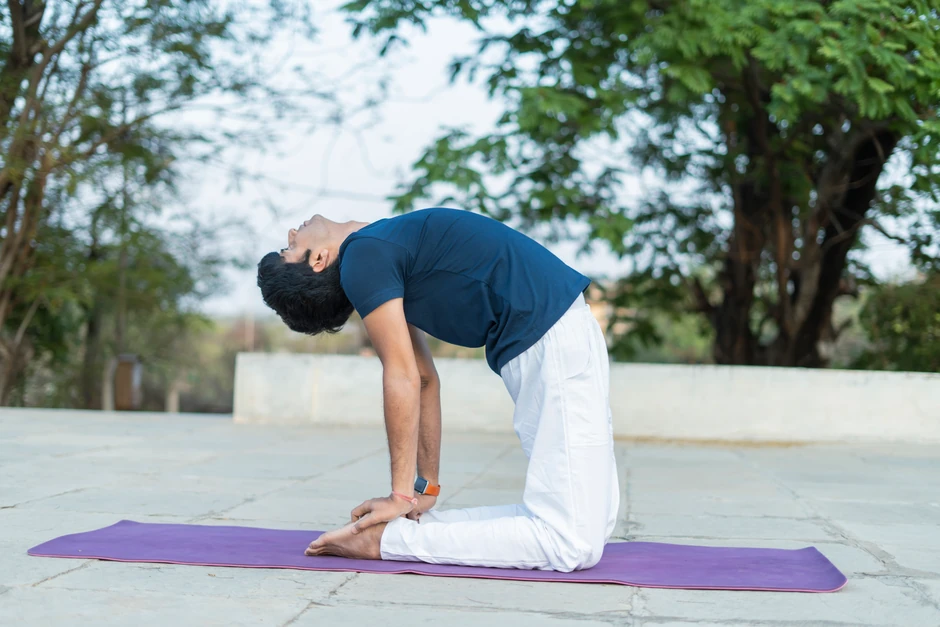
Ustrasana is a deep backbend that can help you release tension and stress. This pose can help you overcome addictive tendencies by promoting self-acceptance and inner peace.
To practice Ustrasana, kneel on the ground with your knees hip-width apart. Place your hands on your lower back and lift your chest towards the ceiling. Hold the pose for a few breaths and then release.
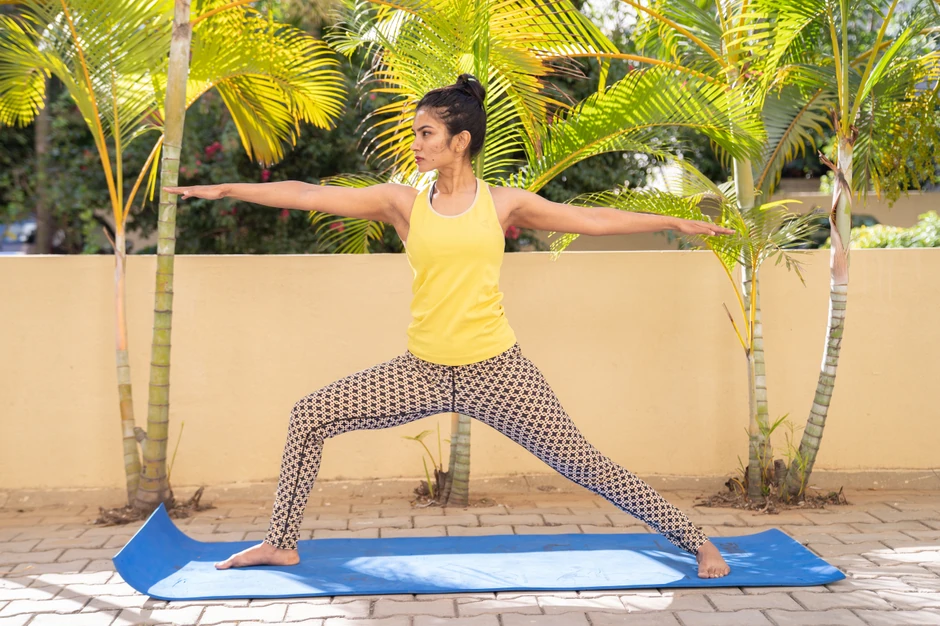
Virabhadrasana II is a powerful standing pose that can help you develop strength and stamina. This pose can help you overcome addictive tendencies by boosting your confidence and self-esteem.
To practice Virabhadrasana II, stand with your feet wide apart and your arms by your sides. Turn your right foot out to the side and bend your right knee. Extend your arms out to the sides and hold the pose for a few breaths. Repeat on the other side.
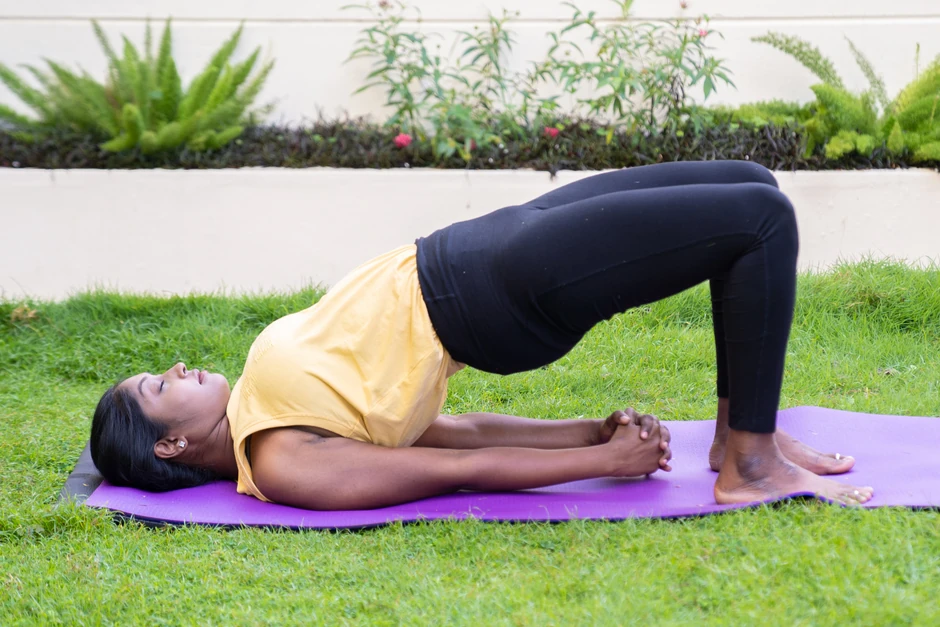
Setu Bandhasana is a gentle backbend that can help you release tension and stress. This pose can help you overcome addictive tendencies by promoting relaxation and inner peace.
To practice Setu Bandhasana, lie on your back with your knees bent and your feet hip-width apart. Lift your hips towards the ceiling and hold the pose for a few breaths.
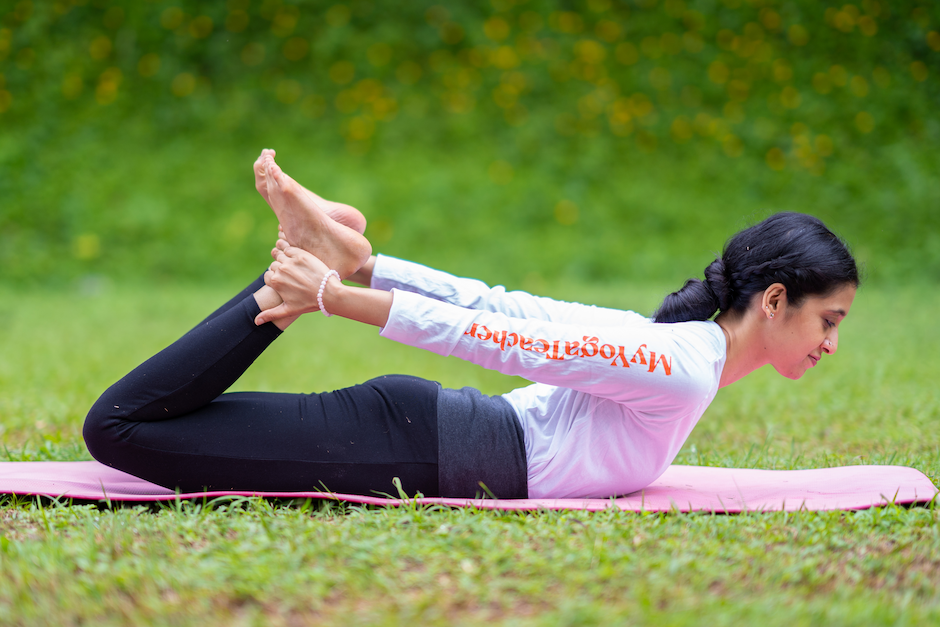
Dhanurasana is a backbend that can help you release tension and increase your energy levels. This pose can help you overcome addictive tendencies by promoting self-awareness and mindfulness.
To practice Dhanurasana, lie on your stomach with your arms by your sides. Bend your knees and reach back to grab your ankles. Lift your chest and thighs off the ground and hold the pose for a few breaths.
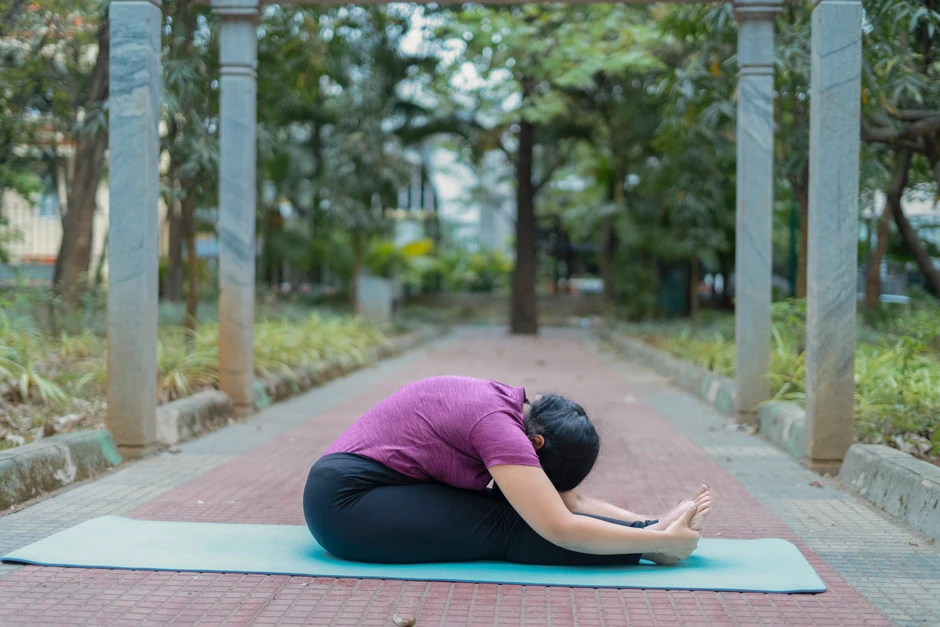
Paschimottanasana is a forward bend that can help you release tension and calm your mind. This pose can help you overcome addictive tendencies by reducing stress and anxiety.
To practice Paschimottanasana, sit on the ground with your legs extended in front of you. Reach forward and grab your feet or ankles. Fold forward and hold the pose for a few breaths.
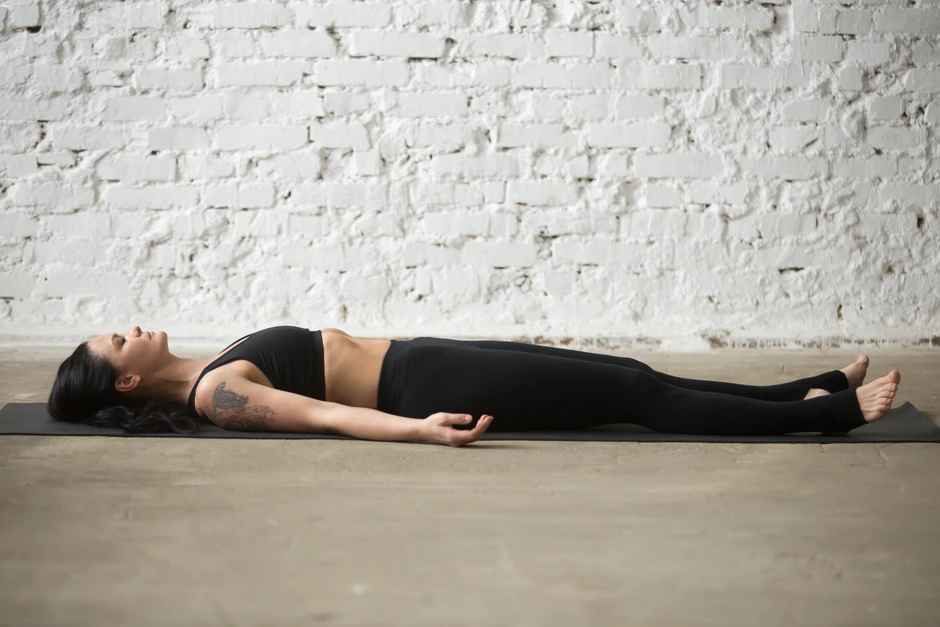
Savasana is a relaxing pose that can help you release tension and promote deep relaxation. This pose can help you overcome addictive tendencies by promoting self-awareness and inner peace.
To practice Savasana, lie on your back with your arms by your sides. Close your eyes and focus on your breath. Allow your body to completely relax and hold the pose for several minutes.
Pranayama, or breathing exercises, can be incredibly helpful for managing stress and anxiety, which are common triggers for addictive behaviors. By practicing pranayama, individuals can learn to regulate their breath and promote a sense of calm. Some pranayama techniques that can be particularly beneficial for addiction and bad habits include:
1. Alternate Nostril Breathing (Nadi Shodhana): This technique involves breathing through alternate nostrils, which can help balance the nervous system and promote relaxation.
2. Bhramari (Bee Breath): This technique involves making a humming sound while exhaling, which can be incredibly calming and soothing.
Meditation is a powerful tool for cultivating mindfulness and self-awareness. By practicing meditation, individuals can learn to observe their thoughts and emotions without judgment, which can help them make more conscious decisions and develop healthier habits. Some meditation techniques that can be particularly beneficial for addiction and bad habits include:
1.Body Scan Meditation: This technique involves scanning the body from head to toe and noticing any sensations without judgment.
2.Loving-Kindness Meditation: This technique involves directing loving-kindness and compassion towards oneself and others, which can be particularly helpful for those who struggle with self-criticism or negative self-talk.
Yoga Nidra, or yogic sleep, is a guided meditation technique that can be incredibly helpful for promoting relaxation and reducing stress. This technique involves lying down in a comfortable position and listening to a guided meditation. Yoga Nidra can be particularly beneficial for those who struggle with insomnia or difficulty sleeping due to addiction or bad habits.
By incorporating these specific yoga practices into a regular yoga practice, individuals can develop greater self-awareness, manage stress and anxiety, and promote relaxation. Yoga for addiction and bad habits is a holistic approach to healing that can be incredibly powerful and transformative.

Receive personalized guidance tailored to your unique fitness goals, live with a dedicated coach—no credit card required.